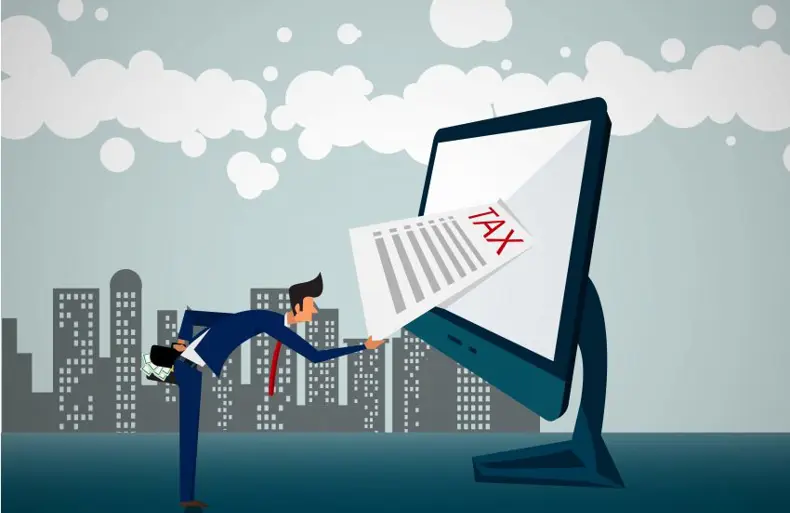Blog | Business Rates
It’s time to prepare for your new business rates bill

As of 1 April, the new financial year begins. So, in the coming weeks, thousands of property owners across the country will hear the thud of a new business rates bill landing on their doorsteps.
1 April also marks the last year of the current rating list, giving owners and occupiers just 12 months to challenge their current rateable value before the list is closed to appeal-based alterations.
With this in mind, here are our top five recommendations for what to do when your rate bill arrives.
1. Do not brush it off as just another bill or an additional void cost to be accepted!
Rate bills are not just another headache – they should always be investigated, even if your empty property is mothballed, to let, or at the design or planning phase.
If a property is empty, rates mitigation can provide a solution to that heavy void cost. This often involves either a storage occupation, which would involve tote-boxes under a separate lease, or a charitable occupation, whereby a charity would occupy the space for an exhibition. Both options provide between 65% and 85% savings for owners, depending on the suitability of the space.
2. Do not accept what you have been told by the council or Valuation Office at face value.
On the back of your rate bill, you may find sweeping statements that are not necessarily compliant with rating law. But don’t be intimidated by this – these statements may not apply to your specific circumstances.
For instance, if a property is empty because it’s being refurbished or is under redevelopment, owners may not be liable for business rates. At 123 George Street, ongoing refurbishment works have left the building unoccupied. The Valuation Office asserts that the scheme is within economic repair, and the council claims that the rating assessment is correct and therefore is beyond their control. So, the owners continue to pay business rates.
However, challenges made to both the council and the Valuation Office, using current case law and regulations, would likely result in additional reliefs or exemptions, and the property being taken off the rating list from the start of refurbishment – meaning significant backdated refunds for the property owners.
3. Do not assume that the empty rates exemption means the issue is dealt with.
Even if a rates exemption has been applied for three or six months, your full liability will hit after this period. If you brush it under the carpet now, a hefty bill could be looming in just 13 weeks.
Again, it is worth checking whether further savings can be made, so seek advice from an RICS-accredited rating firm and consider challenging the council, to ensure you have received all you are entitled to.
4. Do not assume the liability dates are correct.
When you receive your bill, you will be charged based on a period of liability – that is, from when the property first came under your control, or left an exempt period. Do not assume the date on the bill or the amount you have to pay is correct.
It is also important to double check the dates when requesting deletions from rating. The effective date of deletion should correspond with the start of the scheme of works – be it for a refurbishment, conversion or reconfiguration; if the council is seeking these dates on your behalf, the dates will likely be incorrect.
5. Do not assume that the rateable value is correct.
Rateable values can only be challenged for one more year. But even if you only decided to challenge it now, a value change could be backdated, resulting in a refund.
It is worth seeking advice and an appraisal, as challenges to value can be made on account of disturbance, loss of floor area, change of use, refurbishment or simply on levels of value.
As ever, the earlier you can seek advice, the better. Although appeals and relief claims can be backdated, advice secured early on will ensure the best possible outcome is secured.
Get in touch with us for a free appraisal. It’s simple – complete your contact details on the ‘Get in touch’ form on our Property Owner Business Rates page and upload your new rate bill. We can then fact-check it, assess whether or not savings can be made and if there are – advise you on the most efficient risk adverse course of action.
Related Insights

Business Rates in the Budget
The Chancellor announced that:- Small Business Rates multiplier is fixed again (relevant to properties with an RV below 51,00...

We need a Council Tax revaluation – and we need it now
It's clear the system isn’t fit for purpose and, unless something is done about it, our councils will continue to struggle – ...

New Rating Bill – changing business rates
Parliament is soon going to enact new primary legislation on business rates, which will have an impact on your pocket as well...

Investors have just weeks left to change a decade of business rates
When it comes to business rates, eyes tend to glaze over. Many property investors take the view that nothing is certain in li...